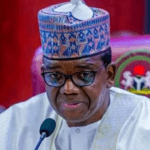Twitter Agrees To Elon Musk’s Takeover For $44bn

Billionaire entrepreneur Elon Musk agreed to buy Twitter Inc. for $44 billion, using one of the biggest leveraged buyout deals in history to take private a 16-year-old social networking platform that has become a hub of public discourse and a flashpoint in the debate over online free speech.
Investors will receive $54.20 for each Twitter share they own, the company said in a statement Monday. The price is 38% more than the stock’s close on April 1, the last business day before Musk disclosed a significant stake in the company, sparking a share rally. Twitter shares were halted for the news.
Musk, one of Twitter’s most prolific users with more than 83 million followers, began amassing a stake of about 9% in January. By March, he had ramped up his criticism of Twitter, alleging that the company’s algorithms are biased and feeds cluttered with automated junk posts. He also suggested Twitter’s user growth was inflated by bots. After rejecting an invitation to join the company’s board, on April 14 he offered to take Twitter private, saying he’d make the platform a bastion of free speech and dropping other hints about the changes he’d make as owner.
The ideas verged from the practical — say, letting users edit tweets and combating the spread of bots — to the peculiar, such as a proposal to turn the company’s San Francisco headquarters into a homeless shelter.
“Free speech is the bedrock of a functioning democracy, and Twitter is the digital town square where matters vital to the future of humanity are debated,” Musk said in the statement on Monday. “Twitter has tremendous potential – I look forward to working with the company and the community of users to unlock it.”
The deal was unanimously approved by the company’s board, and is expected to be completed later this year. Musk secured $25.5 billion of debt and margin loan financing and will provide about $21 billion in equity to fund the deal, according to the statement.
Going private marks a dramatic turnabout for a company that got its start as a messaging service for sharing your status updates with friends, but quickly blossomed into a way for people to broadcast short posts of 140 characters or less to a public following. Twitter caught fire among politicians, celebrities and journalists and took its place alongside social media stalwarts Facebook and YouTube as a standard bearer of a new, more interactive way of using the web that came to be known as Web 2.0.
Twitter on April 15 adopted a shareholder rights plan — a measure known as a poison pill — to fend off unwanted bidders. The plan is exercisable if a party acquires 15% of the stock without prior approval, and sought to ensure that anyone taking control of the social media company through open market accumulation pays all shareholders an appropriate control premium, the company said when it disclosed the plan.
But a turning point came last week when the Tesla Inc. CEO pulled together a financing plan that included 12 banks, led by Morgan Stanley. Just days after revealing the plan, Musk met with Twitter executives as the company turned more receptive toward a deal, a person with knowledge of the matter told Bloomberg News on Sunday.









